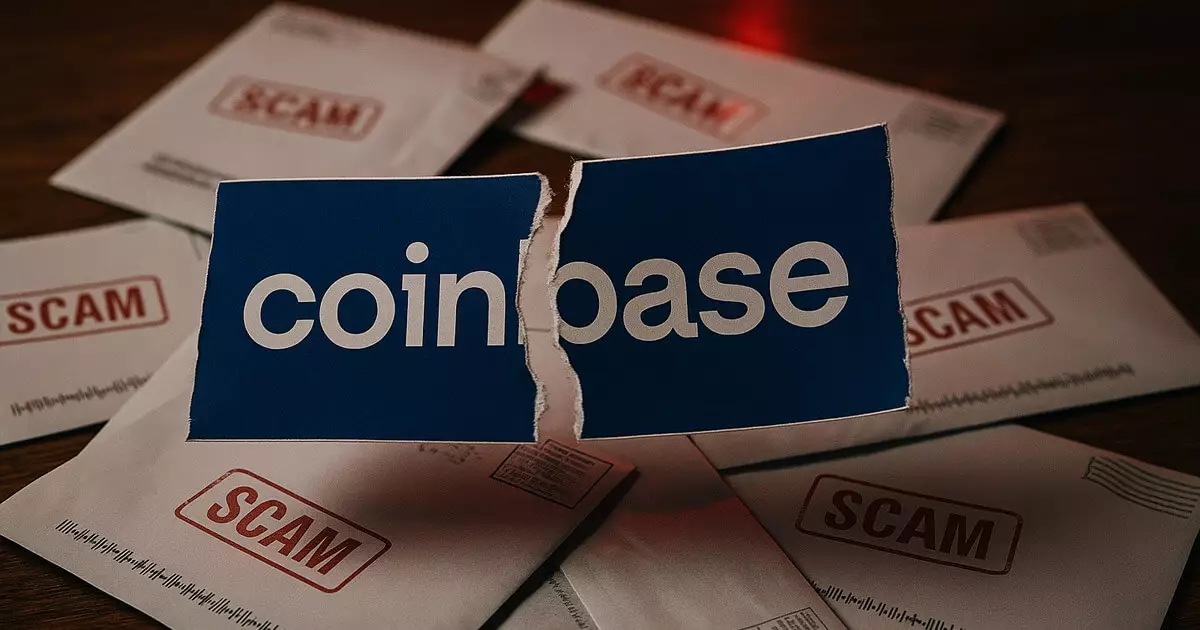In the digital age, a data breach is not just a nuisance; it transforms victims into targets. The recent breach at Coinbase, which compromised the sensitive information of over 69,000 users, has propelled society into a new frontier of vulnerability—one that blurs the lines between online and offline safety. As Mike Dudas, the founder of The Block, boldly pointed out in a recent social media post, this incident serves as a stark reminder that your data can become a weapon against you, exploited by criminals with malicious intent. When personal information intertwines with criminality, you’re left to navigate a labyrinth of scams that may seemingly come from every direction, and the consequences can be alarmingly severe.
From Digital to Physical: A New Phase of Exploitation
Unlike traditional phishing attacks, which often manifest in our inboxes, the latest turn of events reveals an unsettling trend—fraudulent letters delivered right to the victims’ doorsteps. In this age of technological advancement, scammers are leveraging old-fashioned mail to dupe unsuspecting individuals into handing over even more personal data. The very nature of these letters preys upon the trust we place in authoritative entities, particularly when they masquerade as legitimate identity protection services like IDX. This innovative breach of trust underscores a terrifying reality: the sanctity of your mailbox may no longer offer the same security it once did.
Why Coinbase’s Silence Speaks Volumes
The absence of a comprehensive response from Coinbase regarding the ongoing fallout highlights a deeper issue—corporate accountability in cybersecurity. While they have announced measures such as credit monitoring and a substantial reward for information on the attackers, it begs the question: why has this communication not included a direct stance against the physical scams now threatening their users? By failing to acknowledge the gravity of the situation, Coinbase may inadvertently be inviting public scrutiny about the robustness of their security protocols. Users are left wondering if they can truly trust this exchange platform to safeguard their information in the future.
The Urgent Need for Enhanced Security Protocols
It’s essential to recognize that the technology underlying cryptocurrency transactions is not inherently insecure; rather, it’s the human factor that often invites catastrophe. Reports suggest that the breach stemmed from bribed customer support contractors, raising red flags about internal practices and employee oversight. Companies like Coinbase must prioritize robust vetting of their staff and continuously evolve their security measures to stay ahead of exploiting tactics used by criminals. It’s clear that if corporations do not take a proactive stance, they will continue to endure the dark consequences of their negligence, while their users bear the real burdens of identity theft and fraud.
Empowering Users to Navigate a Complex Landscape
In a world rife with cybercriminals who adapt faster than the regulations to counter them, the onus is on users to remain vigilant. Knowledge and awareness about one’s exposure can empower individuals to act decisively when faced with potential scams. People must be equipped with the tools to discern authenticity, strive for personal data hygiene, and drive the conversation about cybersecurity with companies that handle their information. The conversation must not stop at mere transactions; instead, it must expand into the realm of comprehensive protection amidst the risks that loom in the shadows of our digital age.

